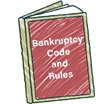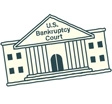Menu

CALL FOR A FREE CONSULTATION
Exceptional Legal Representation Throughout
Long Island and New York, Since 1993.

CALL FOR A FREE CONSULTATION
Exceptional Legal Representation Throughout
Long Island and New York, Since 1993.









Experienced Bankruptcy Nassau and suffolk to Brooklyn and Queens
Bankruptcy offers individuals and businesses a chance to eliminate, reduce, or restructure their debt. Our law firm assists clients with all chapters of the Bankruptcy Code, including Chapter 7, Chapter 11, and Chapter 13, along with Adversary Proceedings and Bankruptcy Appeals.
Let us guide you through the complexities of bankruptcy and help you find the optimal financial solution for your needs.

The primary purpose of federal bankruptcy laws, known as Title 11 of the United States Code or the “Bankruptcy Code,” is to provide financially struggling but legitimate debtors with an opportunity for reorganization or a fresh start. This is achieved through a legally enforceable process that allows debtors to: (1) discharge, reduce, restructure, or extend most of their debts, and (2) shield themselves—within certain limits—from creditor harassment and collection efforts while their bankruptcy case is active.
In addition to aiding debtors, bankruptcy law ensures fair treatment of creditors by: (A) protecting them from fraudulent activities, (B) guaranteeing equal treatment for creditors in similar circumstances, (C) requiring debtors to disclose their assets, income, and liabilities to determine bankruptcy eligibility, and (D) keeping creditors informed and allowing them to voice concerns throughout the proceedings.

An individual (whether filing alone or as part of a married couple) or a business (including a sole proprietorship, partnership, or corporation) can seek bankruptcy protection, with only a few exceptions. Filing a voluntary bankruptcy petition does not require insolvency, although most debtors seeking bankruptcy protection are deemed “insolvent”—meaning they either cannot meet their financial obligations as they become due or have liabilities exceeding their assets.

Filing for bankruptcy offers several significant benefits, including immediate protection from creditors through an “automatic stay.” This stay halts collection efforts, foreclosure proceedings, repossessions, and creditor harassment as soon as the case is filed.
In Chapter 13 or Chapter 11 bankruptcy, most debts can be restructured, reduced, or repaid under a court-approved plan. In Chapter 7 bankruptcy, eligible debts can be eliminated through a “discharge.” Since bankruptcy cases are handled by a federal bankruptcy court with the authority to resolve disputes, debtors have a legal forum to address any concerns or challenges related to their case.
Once a bankruptcy case is filed, creditors must comply with the automatic stay and discharge provisions, ceasing all collection efforts and updating the debtor’s credit report accordingly.
Common reasons individuals and businesses file for bankruptcy include:
Beyond these common uses, bankruptcy may serve other financial and legal purposes. However, given the complexity of bankruptcy law, individuals and businesses considering filing should consult an experienced bankruptcy attorney. A lawyer can assess the case and determine whether the desired financial relief can be achieved.

While bankruptcy is a common solution for severe financial difficulties, several alternatives can serve as substitutes. Some options involve out-of-court negotiations that may result in settlements or loan modifications with creditors. Others include disputing a creditor’s claim by challenging the validity of the debt or the collection methods used, as well as responding to a creditor’s complaint within the required 20 to 30 days.
In some situations, alternatives to bankruptcy may be preferable. However, for individuals facing significant financial hardship, bankruptcy is often the most effective and straightforward option. That said, not all financial issues can be resolved through bankruptcy, and in certain cases, it carries risks.
If most of your debt consists of credit card balances or other unsecured obligations, negotiating with creditors—especially with the assistance of a firm like ours, which has the capability to file for bankruptcy—can lead to substantial debt reductions. While lump-sum settlements typically offer greater discounts than payment plans, both approaches can be beneficial. Additionally, we can litigate against unsecured creditors, particularly in cases involving disputes or when additional time or leverage is needed to secure a favorable outcome.
Bankruptcy usually provides faster and more definitive debt relief. However, if a client is ineligible for bankruptcy due to income or asset restrictions under Chapter 7, or debt limits under Chapter 13 (as outlined below), negotiated settlements or litigation defense may be more suitable—especially if their financial difficulties involve only one or two specific creditors rather than widespread debt. Additionally, some individuals prefer to avoid bankruptcy altogether, and negotiation strategies can provide meaningful relief without filing, even if they may not be as effective as bankruptcy.
Our office regularly negotiates a variety of debts on behalf of our clients, including credit card, tax, mortgage, and other financial obligations.

Bankruptcy cases generally fall into three main categories. Chapter 7, also known as liquidation bankruptcy, is the most common type. It allows businesses to liquidate assets or individuals to eliminate most personal debts through a discharge.
Chapter 13, often called wage earner’s bankruptcy, is designed for individuals with regular income who want to repay their debts over time. It is commonly chosen by those seeking to prevent foreclosure, manage overwhelming debt, or avoid Chapter 7 due to excess income or asset equity. Sole proprietors with steady income may also use Chapter 13 to reorganize and pay off debts.
Chapter 11, known as reorganization bankruptcy, is available to both businesses and individuals looking to restructure their financial obligations while maintaining ownership and control of assets. Businesses often opt for Chapter 11 to continue operations while managing debt repayment.
The procedures, requirements, and rights associated with each type of bankruptcy vary significantly, and their suitability depends on the debtor’s specific circumstances.

Chapter 7 is the most commonly filed type of bankruptcy because it eliminates debt through discharge. However, not everyone qualifies due to specific eligibility requirements. The means test is the primary factor in determining eligibility, comparing a client’s income to the median income for a household of the same size in New York State. This test assesses whether an individual earning above the median can still qualify based on necessary expenses, which must be verifiable and follow IRS guidelines. The means test examines a client’s earnings, allowable expenses, and essential costs over the six months before filing. To qualify for Chapter 7, the client must have a negative budget—excluding payments on debts that would be discharged—and negative disposable income under the test.
If a client does not qualify for Chapter 7 but has positive disposable income under the means and budget tests, they may be eligible for Chapter 13. This option allows them to repay a portion of their debts over a five-year repayment plan, providing an alternative form of debt relief.
Beyond income restrictions, Chapter 7 also has asset-based limitations. If a client has significant unprotected equity in property such as a home, car, or inheritance, a Chapter 7 trustee may liquidate those assets to repay creditors. Even with liens and exemptions, clients with substantial exposed equity should carefully consider whether Chapter 7 is the right choice.
For small businesses, Subchapter V of Chapter 11 offers a streamlined reorganization process that is more efficient and cost-effective than a traditional Chapter 11 case. This option serves as a middle ground between Chapter 11 and Chapter 13, providing businesses with a practical path to financial restructuring.
Determining the most suitable bankruptcy chapter requires careful planning. Consulting with a bankruptcy attorney can help individuals and businesses make informed decisions based on their unique financial situations. Contact us today for a free consultation.

An adversary bankruptcy proceeding is a lawsuit filed within a bankruptcy case by a creditor, debtor, or bankruptcy trustee to resolve a significant legal issue requiring a court decision. Creditors may initiate these proceedings to challenge the dischargeability of a debt, often alleging fraud or misrepresentation by the debtor. Additionally, the bankruptcy trustee may file an adversary proceeding to contest the overall discharge, prevent a fraudulent or preferential transfer, or recover an asset for the benefit of creditors.

A contested motion in a bankruptcy case occurs when one party files a motion and another party opposes it. Common examples include a creditor’s motion to lift the automatic stay despite the debtor’s objection or a Chapter 13 debtor’s motion to reduce or eliminate a specific creditor’s claim.

A bankruptcy appeal is the process of challenging a decision made by the U.S. Bankruptcy Court by seeking review from the U.S. District Court, typically when there is a belief that the decision was made in error.

Individuals and businesses considering bankruptcy often already have significant financial issues reflected on their credit reports or will soon. While filing for bankruptcy does impact credit, it also helps address and potentially resolve underlying financial problems. As a result, individuals who file for bankruptcy may find themselves in a better position to repay new creditors and could eventually present a lower credit risk than before filing.
By eliminating or restructuring high-risk debt, bankruptcy can help individuals regain financial stability and remove the root cause of their financial struggles. Additionally, a bankruptcy attorney can provide guidance on rebuilding credit after filing.
Filing for bankruptcy can be a strategic decision to protect income, assets, bank accounts, and credit standing. It immediately shields the filer from creditors and can help discharge or eliminate most debts, including credit card balances, personal loans, and medical bills. In many cases, individuals can retain their homes, vehicles, bank accounts, and other assets.
The decision to file for bankruptcy is personal and depends on individual financial circumstances. The best way to determine if bankruptcy is the right option is through a free consultation. We offer both phone and in-person consultations at our Melville and Brooklyn offices to discuss your situation and explore the best course of action.

In response to the economic challenges caused by the COVID-19 pandemic, the U.S. Congress enacted the Coronavirus Aid, Relief, and Economic Security (CARES) Act, which was signed into law on March 27, 2020. This legislation provided emergency financial assistance to individuals and businesses while also introducing key modifications to bankruptcy laws.
For Chapter 11 cases, the CARES Act simplified and streamlined the approval process by removing the requirement for a disclosure statement, making it easier for businesses to reorganize under a more concise and efficient plan.
In Chapter 7 cases, the Act made it easier to qualify for bankruptcy relief by excluding additional federal unemployment assistance ($600 per week, later reduced to $300 per week) from the income calculation used in the means test.
For Chapter 13 cases, the CARES Act allowed debtors facing financial hardships due to COVID-19 to extend their repayment plans for up to seven years instead of the standard five, reducing monthly payments and providing greater financial flexibility.

We offer comprehensive bankruptcy services, guiding clients through every step of the process. With nearly 30 years of experience in bankruptcy law, we have the expertise, knowledge, and resources to handle even the most complex cases. Our deep understanding extends to litigated bankruptcy matters, including adversary proceedings, contested motions, and bankruptcy appeals. We specialize in all chapters of the Bankruptcy Code—7, 11, 13, and the newly added Subchapter V of Chapter 11.
Whether your case is straightforward or requires a customized approach, we provide efficient, affordable, and highly effective solutions. Our team is not only skilled and detail-oriented but also deeply committed to helping clients overcome financial challenges. We take pride in our work and strive to make the bankruptcy process as smooth and stress-free as possible. No matter the difficulties you face, we are dedicated to finding the best solutions while ensuring a positive experience for you.
MONDAY – FRIDAY -8.30 AM – 8.30 PM